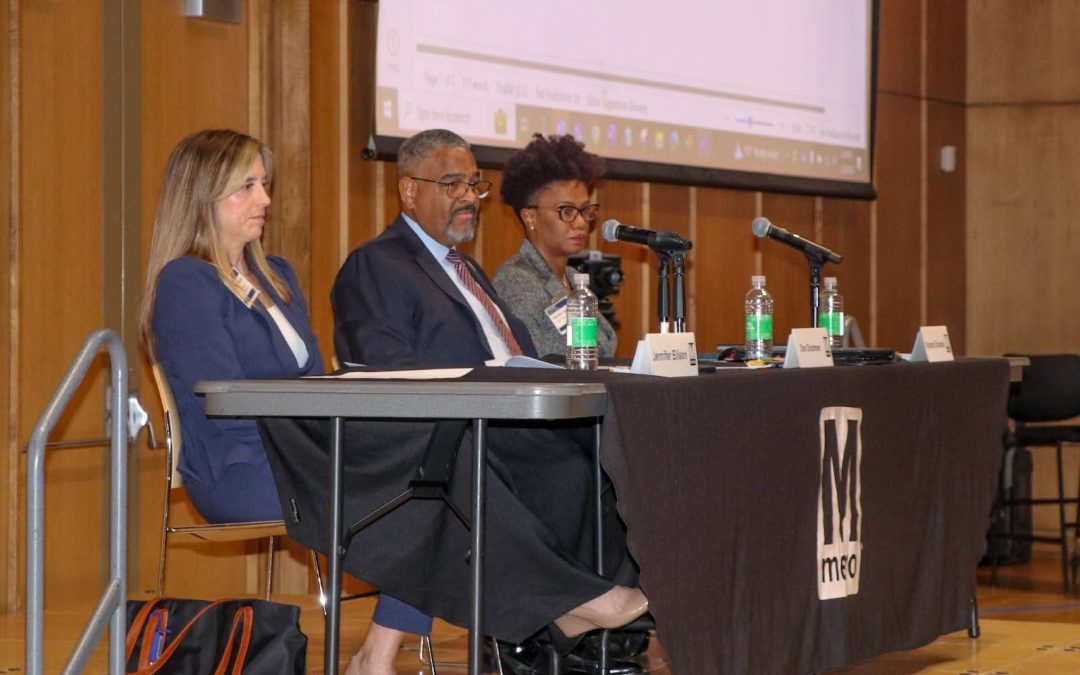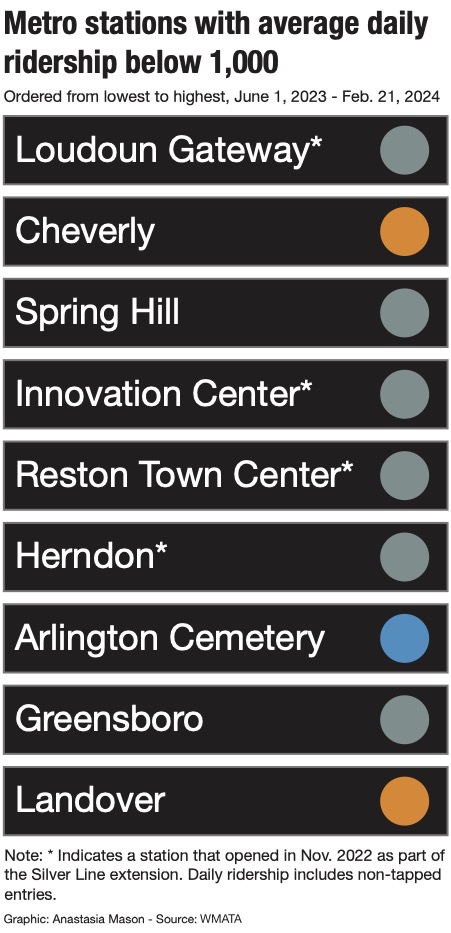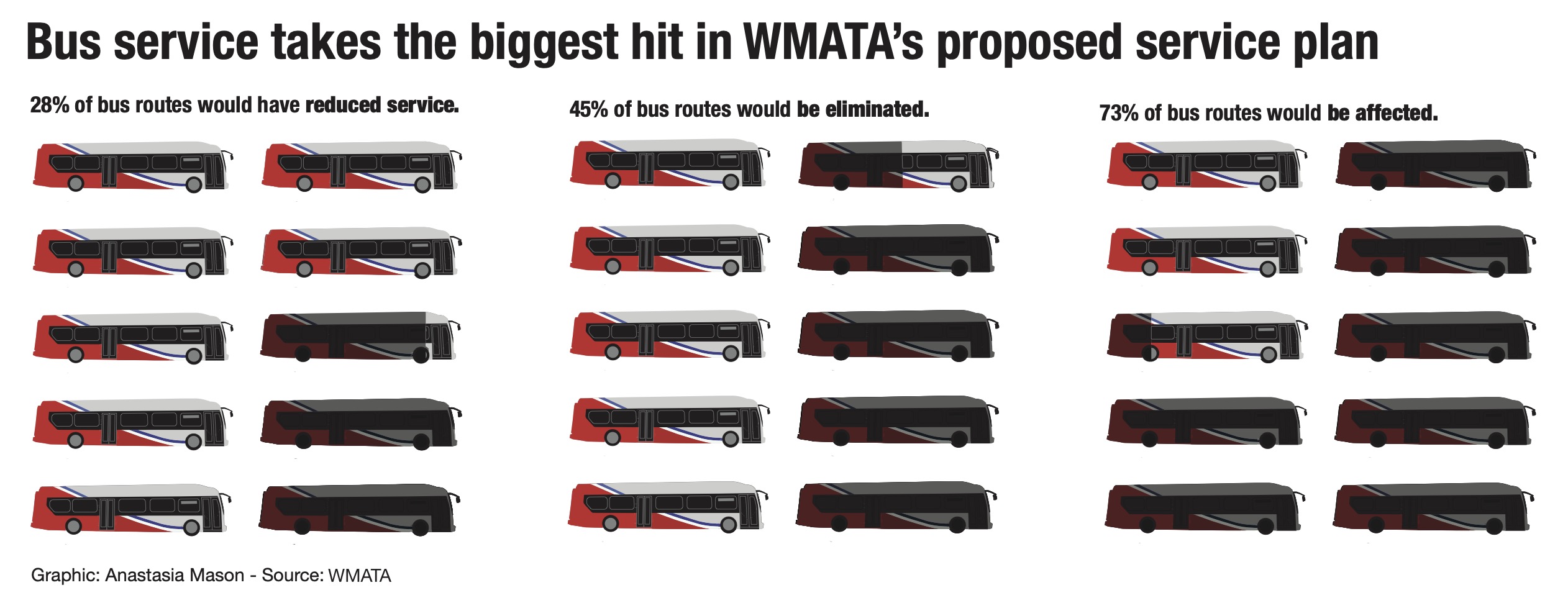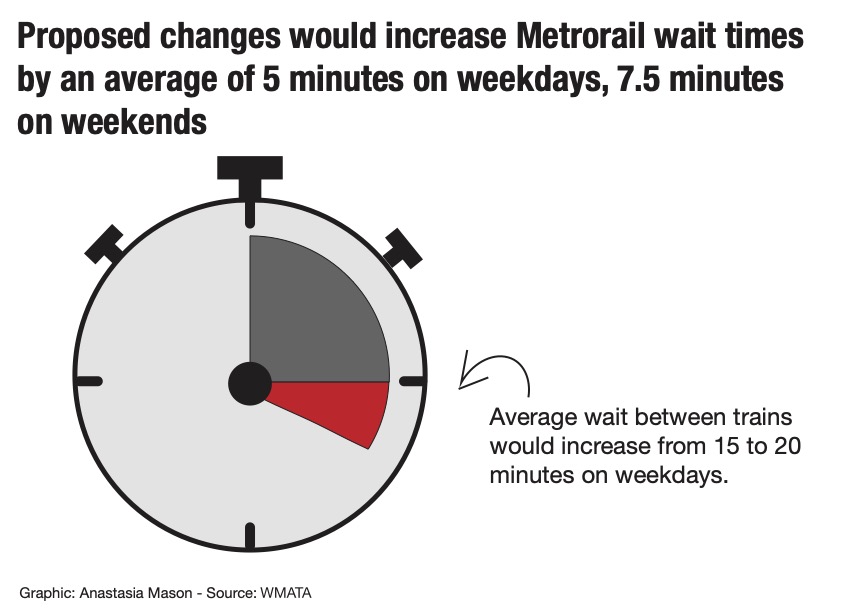It’s taken 72 years for Donald Barrett, who has been blind his entire life, to feel “fully and completely independent,” a success he credits to the Washington Metropolitan Area Transit Authority’s MetroAccess system.
“It’s the kind of independence that touches your heart and your soul, makes you feel like a fully-fledged, free, happy and independent individual,” Barrett said of Abilities-Ride, a MetroAccess program that utilizes taxis and rideshares.
But a quarter of MetroAccess users could lose this service and the independence that comes with it on July 1. Amid a massive $750 million budget deficit, Metro proposed cutting critical ride services for individuals with disabilities, along with other services for bus and rail.
“To just know that our region would even think about kicking people with significant disabilities off of their main mode of transportation was frightening,” said Rob Malone, one of the many residents of the DMV area who came to speak during a series of public hearings on Metro’s proposed budget. Malone is the CEO of The Arc Prince George’s County, a group that supports individuals with disabilities and their families.
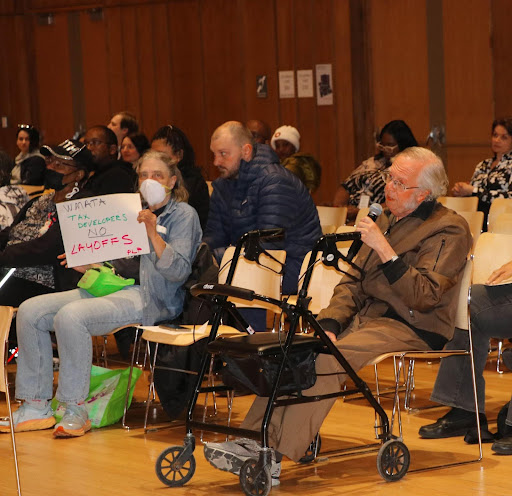
Metro leadership held meetings in Maryland, Virginia and D.C. during the week of Feb. 26 to receive feedback from the public on the WMATA budget proposal. (Emma McNamee/Medill News Service)
The current proposal for the 2025 fiscal year was released on Feb. 8, following $480 million in additional funding commitments from D.C., Maryland and Virginia. Members of Metro leadership noted that the proposed changes would “make Metro unrecognizable.”
As part of these potential changes, Metrorail would lose 10 low-ridership stations and face reduced service on the red and silver lines. Of Metrobus’ 184 routes, 83 would be eliminated. Another 51 routes would be reduced and routes with rail services would be shortened.
With the decrease in service, MetroAccess Paratransit – the shared-ride, door-to-door pickup and drop-off service for eligible customers with disabilities – would also face restrictions. Because federal law requires these services to be provided to areas within three-fourths of a mile of fixed-route bus services and rail stations, changes to Metro’s other offerings would significantly impact the MetroAccess current service area. As a result of the changes, approximately 9,000 of MetroAccess’ 36,000 passengers would lose their access, or be forced to get themselves to the new service area in order to be eligible for pick-up.
“It will impact inclusion,” said Shawn Callaway, President of the D.C. chapter of the National Federation of the Blind. He’s been a MetroAccess rider since 2002.
Metro officials held public meetings on three days in Maryland, D.C. and Virginia. Each time, Metro leadership made the same opening statement: “We recognize that this would not be favorable to our customers or employees.”
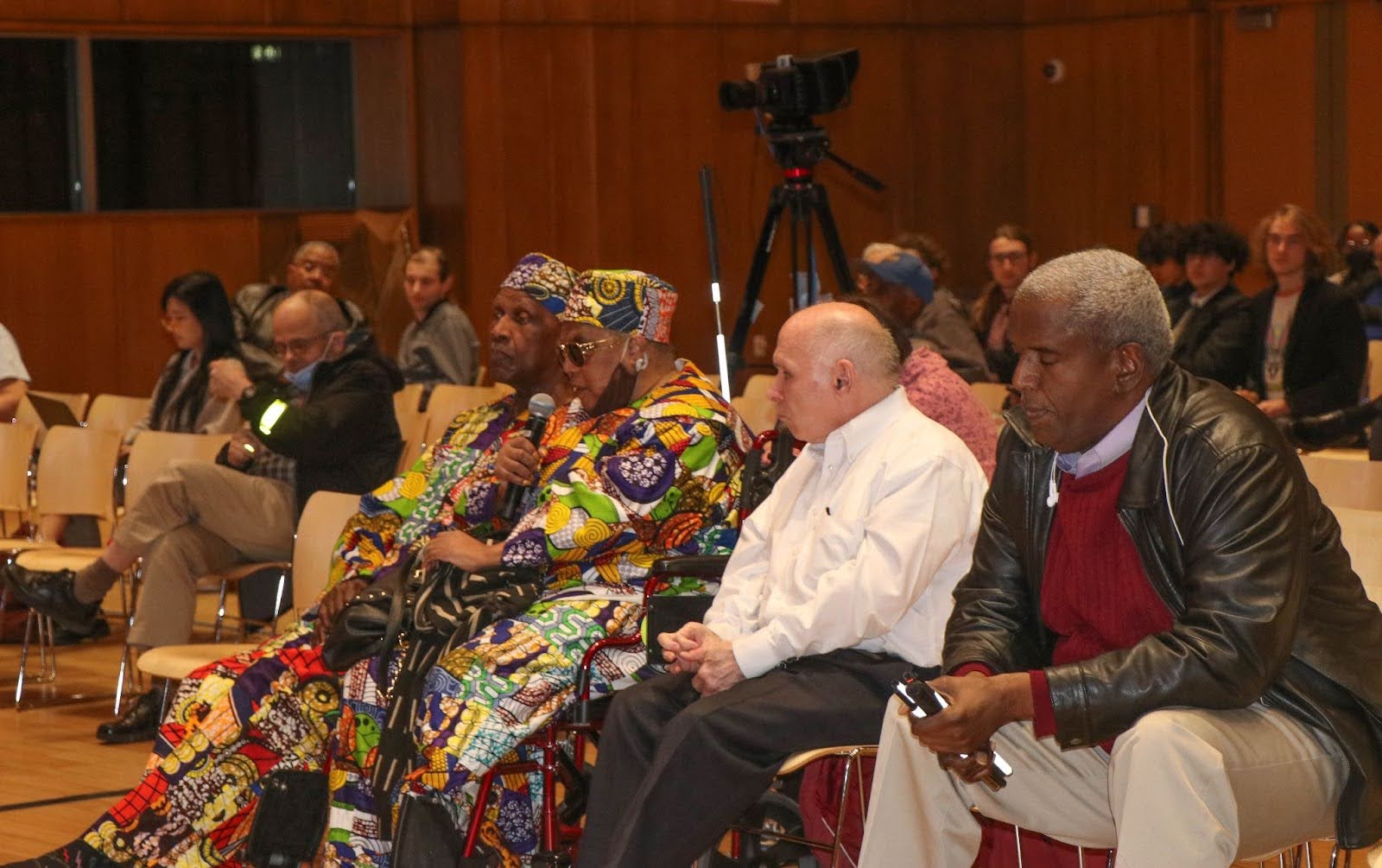
Due to the $750 million budget deficit, services like MetroAccess would be cut under the new budget, a major concern for attendees at the Silver Spring hearing on Feb. 26. (Emma McNamee/Medill News Service)
Among the changes proposed were increases to Metro’s current wait times. Decreased service would increase the time between Metro trains to 15 minutes on weekdays and 20 minutes on weekends, along with reduced service hours for trains, buses, and MetroAccess.
Additionally, fares, fees and parking rates would see an uptick. Across the board, fares would rise by 20%, including MetroAccess, which only adopted $4 flat rate in June 2023.
The Council of DC passed Secure DC, a large anti-crime bill on March 5. One piece of the legislation was aimed at fare evaders, requiring them to give their name and address or face a fine. Metro found that from January to March 2023, 13% of trips were not paid for. Implementing taller gates at Metro stations began shortly after as another way to prevent fare evaders from jumping the turnstiles.
Randy Clarke, WMATA’s General Manager and CEO, expressed his appreciation for the bill on X, stating that it would “help us collect needed fare revenue.”
The COVID-19 pandemic was a significant factor in creating the current budget deficit. Ridership has increased since the initial outbreak in 2020, but MetroRail ridership is still lagging behind its pre-COVID numbers.
Along with increasing fares, service changes, and reducing fair evasion, Metro proposed several other solutions to help close the funding gap.
“Finding a solution to Metro’s longstanding, systemic funding problem is essential. However, the solution cannot be and must not fall on the backs of working-class people,” said Derrick Nabors, who has worked for Metro for two decades and is a member of the Amalgamated Transit Union Local 689. The budget proposal assumes no increase in earnings for L689 union members and a decrease in the Consumer Pricing Index. Close to 8,000 Metro employees are members of L689.
By reducing administrative efficiencies such as contractor and consultant support, Metro identified an additional $145 million in savings. Shifting $253 million in capital funding to cover operating maintenance expenses has also been proposed. However, with much of the capital budget going towards projects that keep the Metro running safely and efficiently, several hearing attendees cautioned against shifting that funding.
Organizations, such as the Action Committee on Transit, advocated for state governments to take a larger role in protecting the system.
“We talk a lot about fare evasion in the Metro system. But, in reality, the biggest fare evaders, and not many of them are here tonight, are the representatives of the Maryland, DC and Virginia governments. They need to pay their fair share in order to keep this system running,” said Jake Goodman, a member of the Action Committee on Transit. The group is based in Silver Spring, Maryland and advocates for accessible transit over cars.
Currently, legislation is moving through the Maryland state legislature to increase funding for Metro, and Virginia State Senator, Louise Lucas (D-Portsmouth), recently announced the Senate would work to add extra – though unspecified – funding to their budget.
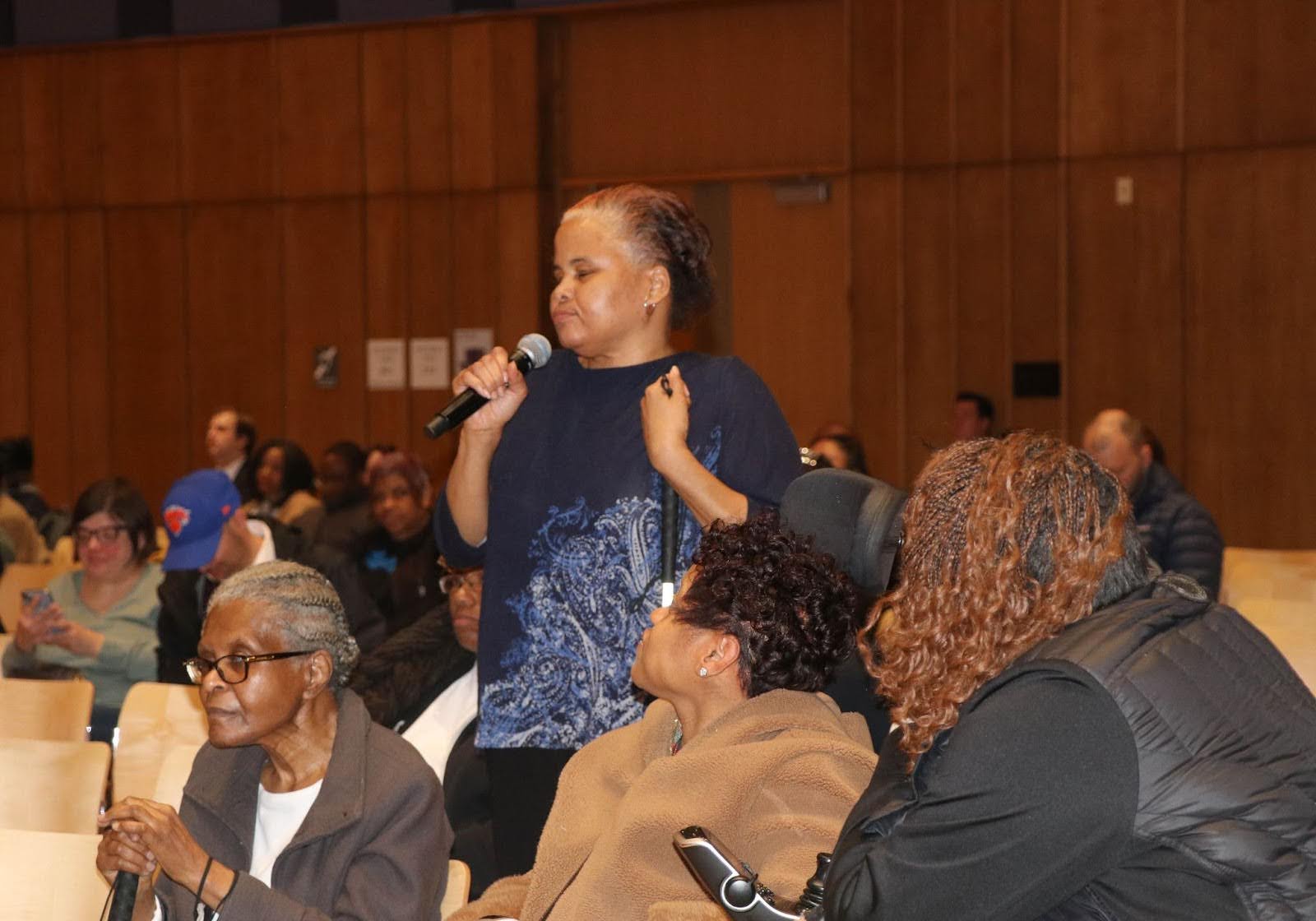
Multiple attendees at the Silver Spring meeting spoke about the effect cuts would have on themselves and other individuals with disabilities. (Emma McNamee/Medill News Service)
“Every two or three years, (Metro) goes through this budget crisis problem, but it’s never been this severe,” said Janice Samuel, a member of the National Federation of the Blind in both DC and Maryland. She’s been using MetroAccess since 2019 to help travel to and from her home in Maryland.
While Metro’s staff said during hearings that they’re hopeful additional funding will help stave off the worst of the service cuts for this year, attendees and staff alike noted that without dedicated and sustainable funding, there could very well be another budget crisis next year.
“This is the most powerful city on the planet. It’s ridiculous that we can’t figure this out,” said Samuel. “But you can’t balance the budget on the backs of the most vulnerable.”

